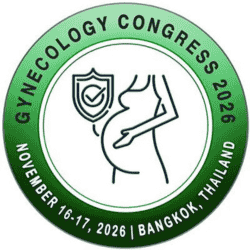Track: Prenatal Nutrition and Perinatal Health

Recent advancements in Prenatal Nutrition and Perinatal Health have highlighted the critical role that maternal nutrition plays in both maternal and fetal well-being. Research now emphasizes the importance of a balanced and individualized diet before conception and during pregnancy, focusing on optimizing nutrient intake to prevent complications such as gestational diabetes, preeclampsia, and low birth weight. Innovations in prenatal supplementation, such as the use of specific micronutrients (e.g., folic acid, iron, calcium, and vitamin D), have been shown to improve both maternal and fetal outcomes. Furthermore, advancements in perinatal health have led to the integration of nutritional counseling into prenatal care, alongside the growing recognition of the link between prenatal nutrition and long-term health outcomes for both the mother and child, including the risk of chronic diseases.
Personalized Prenatal Nutrition:
By understanding the unique genetic and metabolic profiles of expectant mothers, healthcare providers can offer tailored dietary recommendations that optimize maternal and fetal health.
Micronutrient Research:
New findings underscore the importance of key micronutrients like folate, vitamin D, and omega-3 fatty acids in supporting healthy fetal development. Research is now focusing on the optimal timing, dosage, and bioavailability of these nutrients.
Gut Microbiome and Pregnancy:
Increasing evidence suggests that the maternal gut microbiome plays a significant role in pregnancy outcomes. Advances in microbiome research are helping develop targeted interventions to improve maternal gut health, potentially reducing the risk of pregnancy complications such as preeclampsia and gestational diabetes.
Nutritional Interventions for High-Risk Pregnancies:
For women with conditions like obesity, gestational diabetes, and hypertension, there is growing evidence supporting the effectiveness of specific dietary interventions to mitigate risks and improve outcomes for both mother and child.
Technological Innovations in Monitoring:
New wearable technologies and mobile health apps are enabling real-time monitoring of maternal nutrition and health. These tools allow for better tracking of nutrient intake, physical activity, and other health indicators throughout pregnancy.
The Importance of Perinatal Health in the First 1000 Days:
This session emphasizes the critical window of health during the first 1000 days of life, from conception to two years of age. It will explore the lasting impact of prenatal nutrition on child development and discuss how maternal health during pregnancy can influence infant health, cognitive development, and long-term outcomes.
Scientific Highlights
- Maternal-Fetal Medicine
- Reproductive Health and Infertility
- PCOD and PCOS
- Menopause and Menstrual Disorders
- Pediatric Gynecology and Adolescent Gynecology
- Gynecological Pathology
- Gynecological Oncology
- Urogynaecology
- Gynecological Surgeries
- Midwifery
- Prenatal Nutrition and Perinatal Health
- Miscarriage and Mental Health
- Obstetric Emergencies and Critical Care
- Advancements in Gynecology and Obstetrics
- Cosmetic Gynecology


